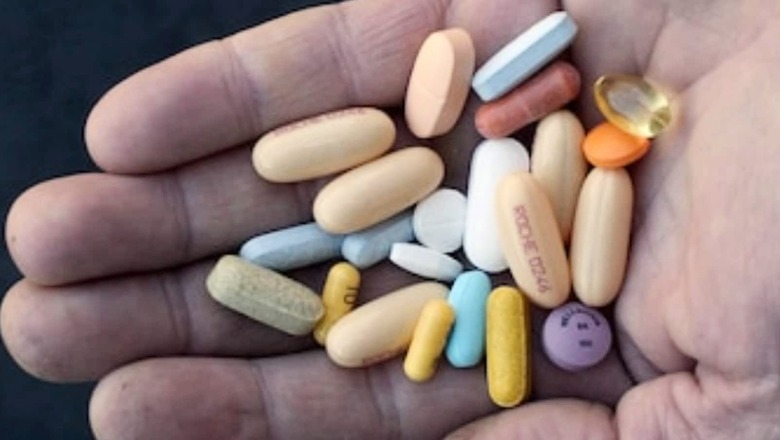
views
In a step closer to slashing prices of medicines via trade-margin rationalisation, the Narendra Modi government has rolled out the process of amending drug-pricing laws, News18.com has learnt.
The department of pharmaceuticals – under the ministry of chemicals and fertilisers – will soon publish the notification informing of amendment in The Drug (Prices Control) Order, 2013. DPCO is an order issued by the government under the Essential Commodities Act, which enables it to fix the prices of vital bulk drugs and their formulations.
News18.com had first reported about the government’s plan to slash the trade margins on July 8 where it had identified a list of antibiotic, anti-diabetic, cardiac, anti-cancer, and nephro drugs.
Trade margin is the difference between the price to trade for manufacturers and the price to patients as the maximum retail price (MRP).
The entire exercise – which is likely to be announced in a phased manner – is being monitored by S Aparna, secretary in the department of pharmaceuticals, ministry of chemicals and fertilisers. The DoP is working closely with the drug price watchdog, National Pharmaceutical Pricing Authority (NPPA), to slash margins. These departments, in turn, are coordinating with the ministry of health and family welfare.
According to the proposed draft notification, accessed by News18.com, “This order may be called the Drugs (Prices Control) Amendment Order, 2022. It shall come into force on the date of its publication in the Official Gazette.”
The formula for rationalising trade margin has also been finalised.
“In such cases, the maximum retail price of such notified class of non-scheduled drugs shall be determined using the following formula – Maximum Retail Price = Price to Distributor + (Price to Distributor x Trade Margin) + Applicable taxes,” reads the proposed draft.
It means the MRP of medicine will be Rs 140 if its price to the distributor is Rs 100, the trade margin is set at 30%, and applicable taxes are around Rs 10 (MRP = 100+ 30+ 10 = Rs 140).
Amendments in para 19 and new definitions
In the upcoming order, the government has decided to substitute paragraph 19, which is on “fixation of ceiling price or trade margin of a drug under certain circumstances”.
In the existing DPCO, 2013, para 19 allows the government to fix the ceiling price or retail price of any drug for such a period in the public interest, irrespective of the annual wholesale price index for that year.
According to the upcoming draft notification for DPCO, 2022, the government can notify any class of non-scheduled drugs for capping of trade margin from time to time.
The draft reads (sic), “The government may if it considers necessary to do so in public interest, notify any class of non-scheduled drugs for capping of trade margin from time to time. Further, the government may fix the trade margin (in percentage) and notify the methodology for calculating Price to Distributor of any for such class of non-scheduled drugs notified from time to time.”
It also states that “Provided that the Trade Margin Rationalisation above provision shall not be applicable on low-cost non-scheduled drugs and to manufacturers for the drug(s) for which exemption is granted under paragraph 32.”
DPCO’s paragraph 32 grants exemption of price control to include any kind of patents such as devices, dosages, forms, compositions, and process patents, as long as it relates to a new drug.
The government has inserted clauses introducing definitions of “low-cost non-scheduled drug” and “trade margin”.
While a non-scheduled drug would mean the one whose maximum retail price is below the threshold price as notified from time to time, trade margin means the difference between the price at which the manufacturer or importer sells the drugs to the distributor excluding taxes and the maximum retail price excluding taxes.
‘Industry needs a break of at least a year’
According to industry officials, the Indian pharma sector is supporting the government’s move. However, they have urged for not launching the rationalising drive for at least one year as the government has recently announced the revised list of essential medicines to cover new medicines under price control.
“It will become too much for the industry to execute at the same time. Both moves will hurt profit margins and need fine-tuning of revenues. The gap between both harsh moves must be of one year at least,” an industry source requesting anonymity said.
Read all the Latest News India and Breaking News here




















Comments
0 comment